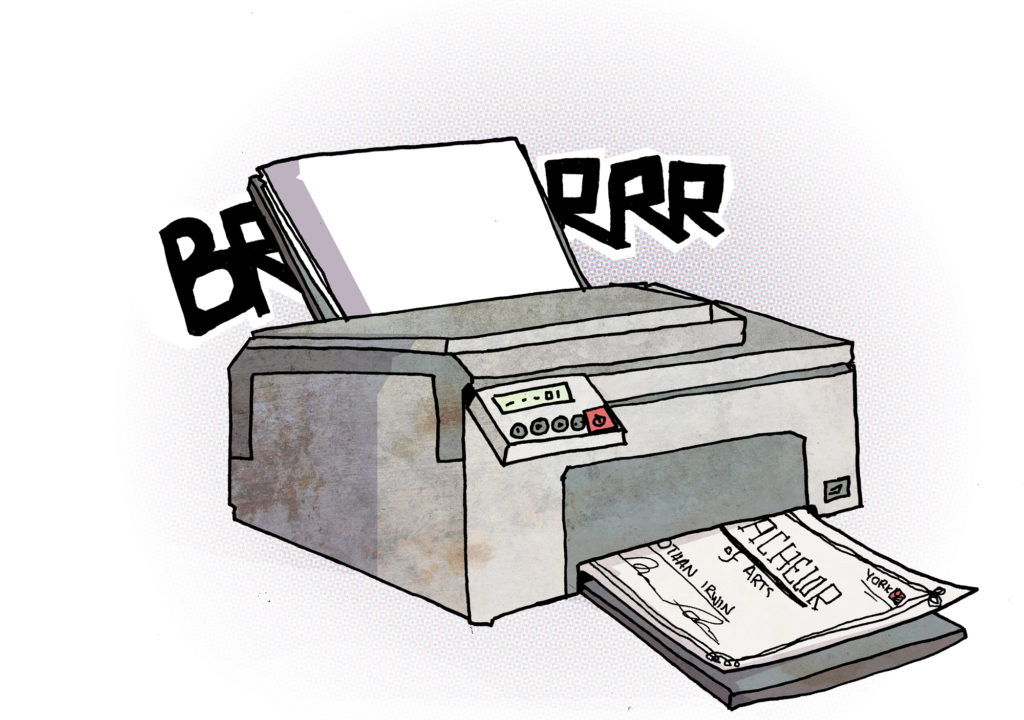New open source-project offers certifications for mastery of MIT-level material, but will they matter in the career world?
Ernest Reid
Science &Technology Editor
@ernestreid

Soon, an Ivy League-level education will be available to everyone.
Massachusetts Institute of Technology is launching a free, open-source, online learning platform, tentatively called MITx. Unlike previous attempts at open education online, the initiative will be interactive, featuring online laboratories, user-to-user communication and assessments of work.
“MITx will offer a completely different educational experience—it’s online, it’s automated, minimizing human participation and so forth,” said MIT provost and project lead L. Rafael Reif to The Tech, MIT’s student paper.
An experimental version will launch Spring 2012. Initially only one course—most likely science or engineering—will be offered. “A handful” of courses will be available in the fall.
“Everybody can have access to these learning tools, and if you can handle the learning of the MIT-quality of the material, you should just go after it and try.”
The provost insists “this is not MIT-lite.”
Internet users can learn at their pace, complete exams, and have assignments marked. Users who demonstrate mastery of a topic can pay a “modest” price for an MITx certificate of completion.
To earn the certificate, users will have to master the material “the way an MIT student would,” Reif specifies.
The future legitimacy of the certificates is unknown. The Tech reports Reif is hopeful that employers could “someday” see MITx certificates as “desirable.”
It is also too early to say whether MITx certificates could contribute to acceptance to the Institute.
MIT officials are emphasizing a difference between the university and MITx. The certificate will not be the same as an MIT degree. An organization within the school will offer certification for online learners of MIT coursework.
An MIT degree holds special distinction,” the press release says, “any such credential [for completion of the course] would not be issued under the name MIT.”
The university still firmly believes in on-campus education as the best education experience for all students.
The platform functions as a “middle-tier” between a traditional on-campus education and OpenCourseWare. It will not replace MIT OpenCourseWare, (OCW) their free publication of undergraduate and graduate course materials, exams, and lectures.
MIT OCW is now 10 years old, features over 2,000 courses and has served over 100 million users.
Like OCW, MITx will largely include video lectures. However, MITx videos will be designed for the web with interactive elements.
“Students, for example, could respond to questions posed by the lecturer and see immediately whether they were right or wrong,” The Tech reported.
Once it moves past the experimental stage, MITx will make its learning software open-source. Universities or high schools around the world could use the software for their own uses.
By keeping the software open-source, MITx might change how institutions use online to educate in their classrooms and in their communities.
The Tech reports that MITx will use data from its large user base to experiment with online learning techniques. MIT will continue to experiment with how to integrate the internet into the classroom.
By releasing the software to the world, other universities can conduct their own experiments on internet pedagogy.
“An open learning infrastructure [lets] other communities of developers to contribute to it, thereby making it self-sustaining,” said Anant Agarwal, an MIT professor and lead developer of the open platform.
MITx’s “infrastructure will improve continuously as it is used and adapted.”
MITx is a game-changer for open education and what a university education means. It is not merely the material you study but the community of scholars you join. Not everyone gets to join this community, and MITx’s proposed interactive user experience hopes to bring that to those who can’t go to university.
“If we’re going to do the best job we can for [MIT],” Reif says, “why don’t we make that available to the whole world?”
With files from MIT, Ethan A. Solomon at The Tech, and Inside Higher Education




